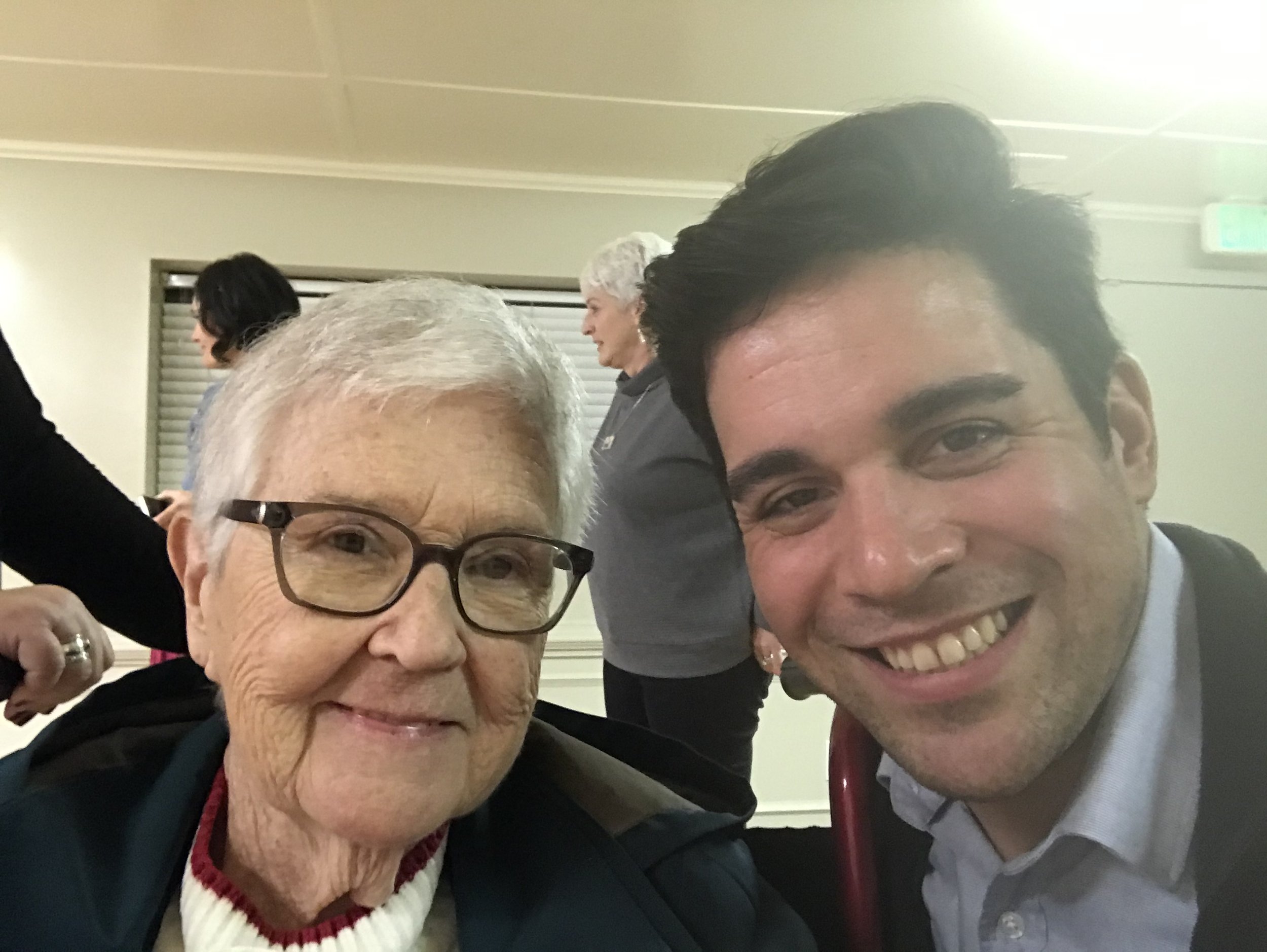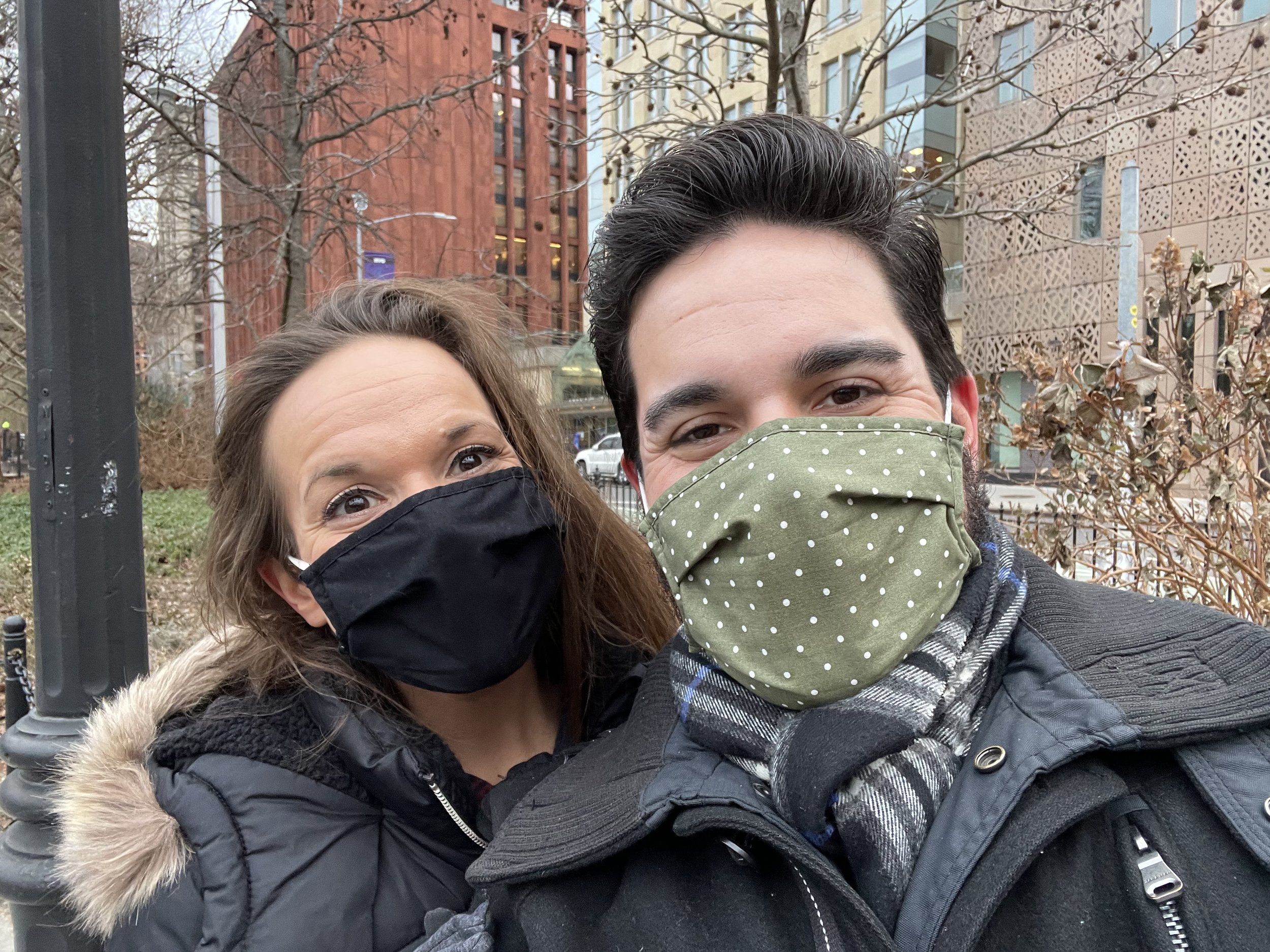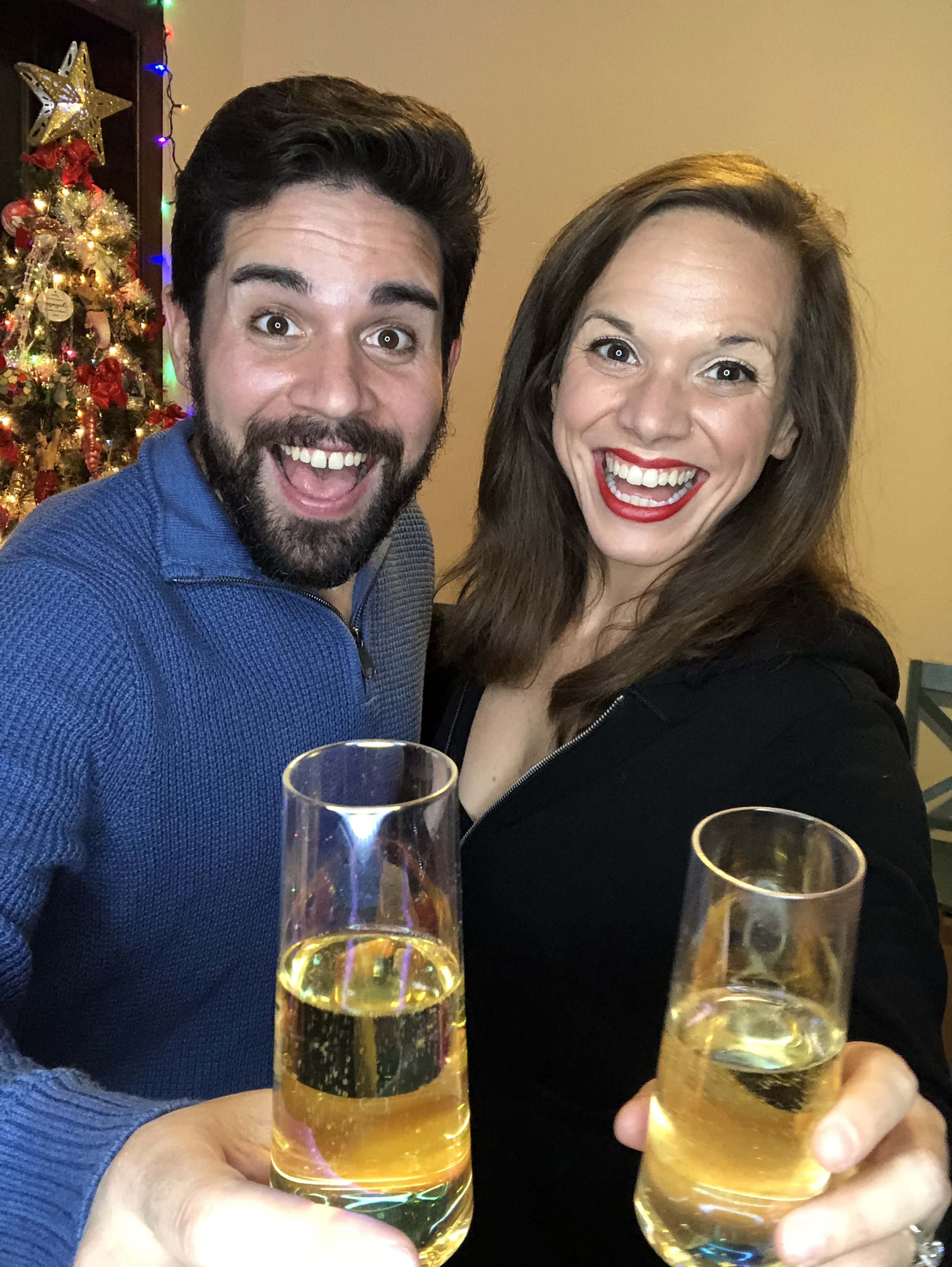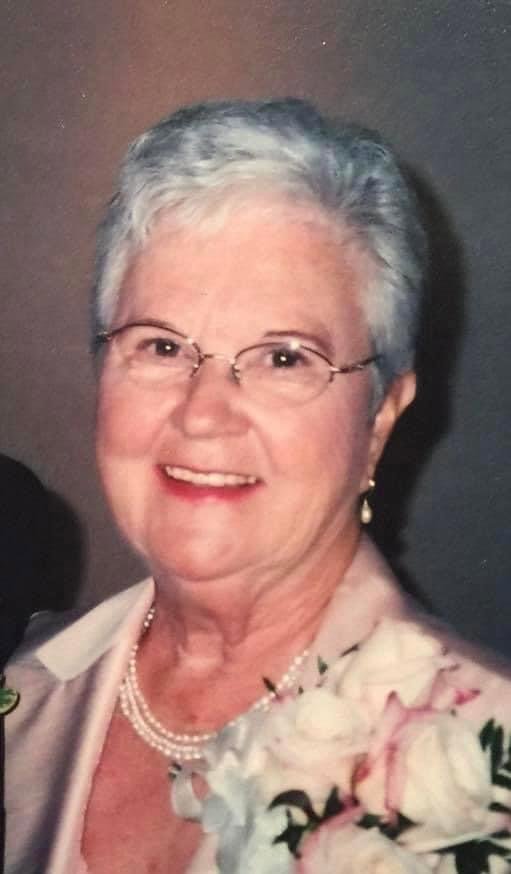While it might not have been until the 1940s that social scientists came up with tools to measure love, it is a lot more scientific than you might think. In this week’s episode, both our storytellers look at their relationships through a scientific lens.
Part 1: Lauren Silverman finds herself drawing parallels between her relationship and steelhead trout.
Lauren Silverman is Head of Programming at Gimlet Media. She’s helped manage teams and run shows such as StartUp, Conviction and How to Save a Planet. Before joining Gimlet, Lauren covered health, science and technology for NPR, Marketplace, and KERA in Dallas. You can find her writing in outlets such as The Atlantic, The Cut and National Geographic. You can see her art, including a painting of steelhead trout, at lrnsilverman.com
Part 2: During the pandemic, Grant Bowen is torn between his ailing grandmother and his immunocompromised girlfriend.
As a storyteller, Grant has been seen at The Moth, Nights of Our Lives, The Adam Wade from NH Show, Happy Hour Story Hour, Gems (Cluster Ring Edition), Comedy Hub Live, and How Was It? He co-produces Awkward Teenage Years, an award-winning monthly storytelling show focused on stories from middle school and high school years. His solo show, A Public Private Prayer, has played in multiple theatre festivals across NYC and is seeking opportunities nationwide. Select acting credits include Angelina Ballerina (Vital Theatre Company, NY); Godspell (Infinity Theatre Company, MD); Yearning for Peace (Articulate Theatre Company); Miss Nelson is Missing! (Two Beans/Theatreworks USA); & Joseph and the Amazing Technicolor Dreamcoat (Snow Camp Outdoor Theatre, NC). Grant has also written a full-length play, Late Night Odyssey, which received a staged reading at the 2018 Broadway Bound Theatre Festival. His one act play, Lay Down My Sword and Shield, received a full production from Articulate Theatre Company. www.grant-bowen.com
Episode Transcript
Part 1
A while back, I was on this hike with my husband in Northern California. The trail covered all sorts of terrain, through redwoods and eucalyptus and then, at the end of the forest, it spit us out onto a cliff with a sandy beach below and a 30‑foot waterfall that cascaded down to the sand and wound its way to the ocean.
When we got to the beach, I saw something shiny flapping around, so I got closer. It was a silver and pink fish, a rainbow trout that was stranded. It was gasping. And the way it opened and closed its lips gulping for air looked almost human.
I shouted for Paulo to come check it out. He ran over, glanced at the fish in the sand then up at the waterfall, just as perplexed as I was. Most fish do not leap from waterfalls trying to enter the ocean.
I wondered if the fish was lost or suicidal or had fallen from the sky. I scooped it up. I knew the fish needed to be back in water but I wasn't sure which way to throw it or if it would survive. I decided on the ocean and hurled it into the waves. Then I followed Paulo back to the trail.
Paulo and I had been taking long walks together for the past ten years ever since we met on a sidewalk in Buenos Aires, Argentina. When I first saw him, he was juggling a scuffed‑up soccer ball with a friend outside of the apartment where I lived. We were both in our early 20s, still hungry enough to devour the world.
I didn't care that Paulo spoke no English and had no bank account. To his credit, he didn't care that I was a capitalist Yankee who didn't like red meat. At that point, our differences were intriguing. Paulo showed me what life could be like if I loosened up and slowed down.
When I speed walked through the plazas, he'd ask, “¿Por qué estás apurada?” “Why are you rushing?”
He came from a tiny town where people always stopped to say hello. His presence softened me.
After spending six months together in Argentina and then dating long distance, we decided to try and live together in the United States. Paulo borrowed money for a work visa and bought his first plane ticket. It was crazy, like jumping off a waterfall. But he made it, landing thousands of miles away in the northern hemisphere.
Paulo and Lauren Silverman in Buenos Aires in 2009. Photo courtesy of Lauren Silverman.
About three months later on a lunch break from my internship at NPR and Paulo's new job walking dogs, we got married so that we could stay together in the United States. Our honeymoon was the Metro ride from Virginia back to Washington DC. And that was fine with me. I didn't care about a wedding or, really, even think about what our life together would look like long term. Besides, I could see Paulo was adjusting to life in the US.
There were subtle changes. I noticed Paulo learned to greet people by shaking hands instead of kissing cheeks. He tried new foods, like sushi and, even on a few occasions, introduced himself as Paul. It could be cringey but I saw him acclimating.
In the first four years, Paulo lived in the US. He returned home just twice. The economy in Argentina was a mess and, if I'm honest, a part of me didn't want it to improve. I worried he might be tempted to go back. Because as much as I loved visiting Argentina, the thought of permanently living there made my chest tighten and my stomach seize up. The life Paulo missed made me claustrophobic. All the cramped apartments, the impromptu barbecues or asados and the get‑togethers that always dragged into the morning.
I'm an introvert and a somewhat individualistic person, which is why the South America I knew is not an America I felt at home in. So, for years, I took an extreme preventative measure aimed at keeping Paulo in the US. I became patriotic. And if you, like me, grew up in the Bay Area during the presidency of GW Bush, you'll understand that patriotism didn't come easy, but I tried.
“Look how simple it is to get a low‑interest loan here,” I'd say.
I'd boast about kitchen technology. “Look at all the people with dishwashers and garbage disposals.” I thought it was rubbing off.
Over the next few years, Paulo finished school, he got an engineering degree and hatched plans to start a business. It seemed like he'd adapted. I was really looking forward to the two of us finally settling down in my hometown of Oakland, California. But as soon as there was a chance to plant roots, he admitted he was feeling a familiar tug toward home.
It was around that time that I saw the fish flopping about in the sand. I don't know why but even after we came home from that hike, I kept thinking about it. So, I researched.
I learned that there's a name for fish crazy enough to leap from waterfalls into oceans, anadromous fish. They migrate from freshwater rivers and lakes to the salty ocean and back to spawn, like salmon.
A painting of a rainbow trout by Lauren Silverman.
But what I saw, it was a rainbow trout. And unlike most other fish that migrate, only some rainbow trout decide to leave everything behind and make the journey to the ocean and back. The ones that leave, they undergo this remarkable transformation to survive in the salty water. They develop special cells in their gills and kidneys. Their pink stripe fades and they turn blue to camouflage. They get bigger and adjust their diets to eat squid and crab. And, they get a new name, steelhead.
What I learned felt familiar. But researching about fish could only distract me from what was going on on dry land for so long. Paulo was talking more and more about moving back to Argentina.
For years, it had just been the occasional comment. “I'd kill for a barbecue with my friends,” or, “I miss playing chess in the park.” But now, it morphed into full‑blown manifestos that tore down America's work‑first culture and broken healthcare system.
I decided to shelve our discussions of having kids and stop half joking about baby names. He was rejecting anything that tied him to the United States, including me. Only the people closest to me dared to suggest that maybe the relationship had run its course.
I wanted to blame Paulo's homesickness for our separation but, of course, it was much messier than that. Our personality differences also fed the widening gulf between us. The gap grew to be so large, I wondered if we'd ever been compatible in the first place.
We went to couples therapy, tried to find common ground but, more and more, I was feeling like the anchor dragging him down.
One night in 2019, more than ten years after Paulo had flown 6,000 miles north to find me, he said he needed to find himself. He needed to return to Argentina and he left.
I was a mess. I'd cry when I'd see the dry, second towel hanging in the bathroom or when I'd cut tomatoes with the dull knives Paulo always sharpened. A lot of nights I stayed home and stared into my laptop, researching anadromous fish as if they too might slip away.
It was around this time that I read something so remarkable about steelhead that I actually slapped my hands on my desk in disbelief. I learned that, unlike salmon, which returned to their native river to spawn and then die, steelhead trout are wired to survive and even make the journey to the ocean and back again. In other words, their trip home, it doesn't have to be one way. The thought gave me comfort.
Then, four months after Paulo and I split up, the phone rang. It was Paulo calling from Argentina. He said he had decided to return to California, to me.
I couldn't help smiling. I was thinking about us, of course, but I was also thinking about the journey of the steelhead trout. I wasn't sure which way we were headed or if we'd survive, but I knew we were both ready to throw ourselves into the waves.
Part 2
In December of 2019, I was visiting my family in Alabama for the holidays. One afternoon, we went over to visit my grandparents Ditda and Daddy Y. I called my grandmother Ditda, her real name was Sylvia. No one knows where Ditda came from. The best we can guess is that it was baby talk that stuck.
Ditda was sweet, loving, kind, like the perfect grandmother, but she also had a little bit of sass to her. To give you an example, one of the first things I learned to say as a baby was, “You stupid idiot,” because that's what she yelled at a driver that cut her off while I was in the back seat. It's that mixture of the sweetness and the sassiness that gave her this spark.
Grant Bowen shares his story at Caveat in New York, NY in May 2022. Photo by Zhen Qin.
She would cook lunch for us every Sundays. She would look after us when my parents were away. If I called her, she'd always answer with a, “Hey, buddy.”
Ditda was always there when we needed her the most. And it was during this visit in 2019 that my grandfather Daddy Y told me that he needed to tell me something. So we went out onto their back deck. That's where he explained that Ditda had been diagnosed with vascular dementia, which was a shock. I knew that Ditda had had a history of heart problems. She'd had a couple of surgeries, difficulty recovering from them, but I didn't realize any of that could result in dementia.
And the way Daddy Y explained it, it was just the kind of condition that you hoped wouldn't get worse. So in my head, I was anticipating making a lot more trips back home to help take care of her in 2020.
I fly back to New York. The next thing I know, it's March of 2020 and my boss is standing in front of my desk telling me that our office is about to temporarily shut down due to the coronavirus pandemic.
As I step outside and start heading towards the subway to go home, my phone starts ringing. I see that it's my aunt who tells me that Ditda has fallen in the bathroom and broken her hip. She's going to need intense surgery, extension physical rehab. Only, now, all of that is going to involve being isolated from the rest of the family. My stomach just sank.
Grant Bowen shares his story at Caveat in New York, NY in May 2022. Photo by Zhen Qin.
More information about this virus started coming out. At the time, I had just moved in with my fiancé, Marisa. Marisa is bright and funny and infectiously joyful, but she's also very smart and a very practical planner. On top of that, she lives with an autoimmune disease so she was at risk.
So we started taking all of this information really seriously. So we sat down and we talked about it and we just decided, okay, we're going to follow all of the CDC guidelines. We're staying here in New York. We're not getting on any public transit. No airplanes. No big trips, unless it's just you and me in a car.
And I agreed. But, unfortunately, that meant I was going to have to hear all of the news about Ditda miles away from the rest of my family.
We called her when she got out of physical rehab and we asked her how it was. Some of that trademark sass came back. She pulled herself up. She was like, “Y'all, I was incarcerated,” and we laughed, but I couldn't help but notice that something was kind of off. Like a little bit of that spark had just been chipped away.
Now, unfortunately, my family in Alabama was not getting the same information about this virus that I was getting in New York. Here I was isolating and wiping down all of my groceries. Meanwhile, they were all going to Ditda's house all at once all the time. So I had to rationalize my actions to myself.
I was like, “Look, you're not just protecting yourself. You're protecting Marisa. You're protecting your family. You don't want to be the one who makes Ditda worse by going home.”
But as the year went on, Ditda seemed to get worse month by month. She eventually fell again and ended up going back to physical rehab where she did test positive for COVID and had to be temporarily hospitalized. I was just worried that all of this was going to exacerbate her dementia more and more.
And so I tried talking to my parents. I said, “Is there anything I can do? Can I send money? Can I can I order food from up here?”
And they said, “You don't worry about that. We've got that covered. All you can do is just try calling her more often,” and that killed me, because I would have given anything to be by her side the way the rest of them were.
I did try calling more but it got to the point where she couldn't talk every day. Some days she would talk for a little bit and then trail off and never come back. Eventually, she stopped eating. The last time I saw her was on her birthday, February of 2021. Of course, they were having a big party at the house and I FaceTime in and they passed the phone to her.
I try to be like, “Hey, Ditda,” and there's just this blankness to her stare. that spark was almost entirely gone. And 23 days later, I get the call that she's passed away. At that point, I knew missing that funeral was out of the question.



Marisa understood so, once again, she became the practical planner. She's like, “Okay, my parents live on Cape Cod. They've been safe this entire time. My dad can drive into the city, pick me up right before you get back and then you can have two weeks to quarantine in our apartment after you get back.” I felt really confident about this plan.
So, I get on a plane for the first time in over a year and fly back to Alabama. Thankfully, everybody agreed to wear masks at the funeral. I tried to set my own boundaries. I tried to say, “Okay, no shaking hands. No hugs. You're just going to thank people for coming.” And I followed none of that.
Basically, people just walked up and just wrapped their arms around me, telling me how sorry they were. I was thanking them and immediately running to the nearest bottle of hand sanitizer and just coating my hands with it.
Eventually, I make my way over to Daddy Y. He looks at me and he says, “She loved you and she knew that you loved her. And we all understand why you couldn't be here for any of this.”
On the one hand, that was good to hear but, as I stood in front of Ditda's casket, looking at this malnourished body that I didn't even recognize anymore, I just felt this guilt just burning through me. I couldn't help but worry that maybe because of her condition that she didn't understand why I wasn't there for the last year of her life.
We get to the end of the funeral. I fly back to New York and I spend two weeks in the apartment alone and grieving.
It's a Friday afternoon in March of 2021. I'm past the two‑week quarantine and it's almost a year since the pandemic was declared a national emergency. At this point, I've been going into my office twice a week. I'm still staying off public transit, so I am walking three miles uptown and downtown twice a week with my mask on.
My phone starts ringing. I see it's Marisa. It's the day before she's supposed to come home. So I answer and I go, “Hey, I'm really excited to see you tomorrow.”
And she says, “Hey, my mom has a fever of 102.”
I go, “Is it just a cold? Is it COVID? Can you go get tested? Can you find out?”
Grant Bowen shares his story at Caveat in New York, NY in May 2022. Photo by Zhen Qin.
She's like, “There's no rapid tests on Cape Cod right now. I would have to go take a PCR test and wait for three days for the result. And by three days, it might be too late.”
I don't know what to say. At this point, my head's just spinning. I'm just thinking like, “How could this happen? We did everything we were supposed to do. And, now, what happens? Marisa's immunocompromised. What happens if she gets sick? What happens if she comes back and I get sick?”
And she says, “I've asked all my friends and they don't know what I should do. What do you think?”
At that moment, that guilt I felt at Ditda’s casket crept back into my mind and I found myself saying, “I would feel a lot better if you came home so that I could be there to take care of you.”
Marisa did come home and she did test positive for COVID, which meant, now, I had COVID. We went through the whole thing. Felt all the symptoms, slept in separate rooms, had our groceries delivered to the door and, luckily, luckily, we came out the other side.
Some people might hear that story and say they would have made a different decision, but I can tell you, if I had to do it again, I would. Because after Ditda, I can't miss out on being there for someone I love again.
Thank you.





